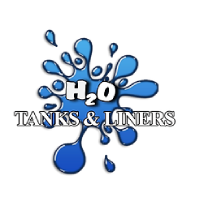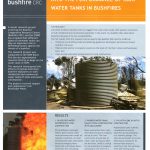Our Clients
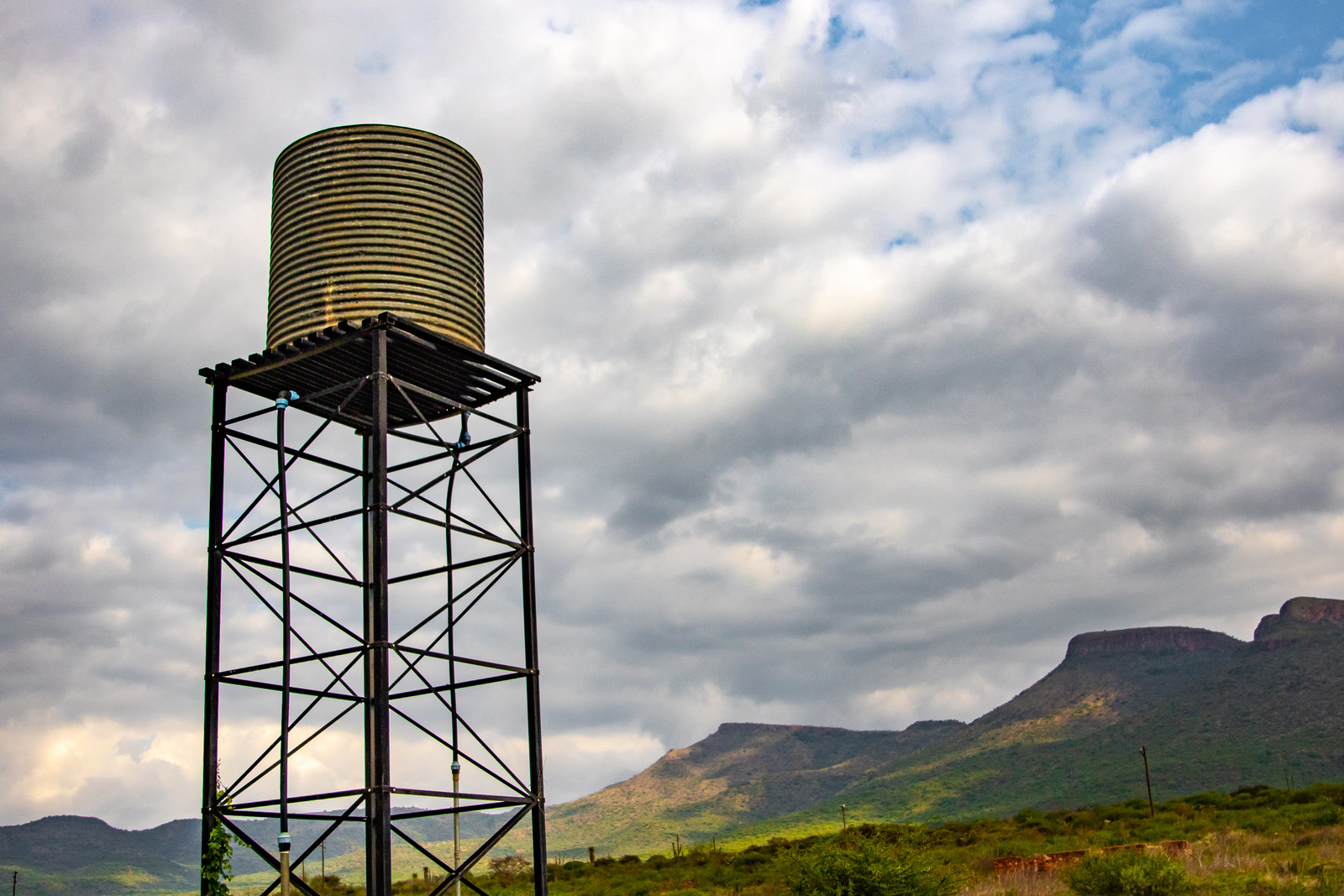
Struggling with Unreliable Water Storage?
Inconsistent water supply can disrupt daily life and drive up costs. Traditional storage options are prone to leaks, contamination, and limited capacity, leaving you frustrated and vulnerable. Relying on subpar tanks can negatively impact both your home and business. But you don’t have to settle for unreliable solutions.
At Cessnock Tank Works, we offer durable, customisable steel tanks built to provide safe, long-term water storage. Our premium tanks are designed for lasting reliability, ensuring peace of mind, efficiency, and value. Say goodbye to unreliable tanks—experience the difference with us.
What are water tanks?
Water tanks are essential systems designed to store water for a variety of purposes, including drinking, irrigation, and emergency supply. Available in various sizes and materials, such as steel, plastic, and concrete, each type is tailored to meet different needs and environments.
In regions like Newcastle and the Central Coast, where water conservation and preparedness are crucial, water tanks are an invaluable solution for storing rainwater and ensuring a reliable water supply. They help safeguard against droughts, water restrictions, and emergencies, all while promoting sustainability.
Investing in a quality water tank means having access to fresh water when you need it most—whether for daily use, maintaining your garden, or protecting your home or business during bushfire season.
Why You Should Get a Water Tank This 2025?
With climate variability on the rise and water restrictions becoming more frequent, having a reliable water storage system is essential. A well-designed water tank allows you to store rainwater for use during dry spells, keeping your home or business self-sufficient when water supply is limited.
Water tanks also play a crucial role in managing flood risks. By capturing rainwater, they reduce runoff, preventing erosion and flooding in your yard and local community. Rainwater is free from chlorine and other chemicals, providing clean, fresh water for everyday use, gardening, and firefighting.
With bushfire risks still a concern across many regions, particularly in drought-prone areas, water tanks offer invaluable support. They provide a vital water source for firefighters and emergency services. As mentioned by Bushfire Resilience Inc., metal tanks are often considered one of the most reliable assets during bushfire seasons.
Investing in a water tank in 2025 isn’t just about preparing for shortages—it’s about embracing sustainability, reducing environmental impact, and securing peace of mind. Whether you’re saving on water bills, protecting your property from natural disasters, or ensuring access to water, a quality water tank is a must-have for every home and business.

Explore the Different Types of Water Tanks
Choosing the right water tank material is essential for long-lasting performance and reliability. Here’s an overview of the most common materials, along with their advantages and disadvantages:
PVC Tanks
Pros: Affordable, strong, lightweight, and corrosion-resistant.
Cons: Brittle in cold weather, may leach chemicals if not food-grade, and potentially contains carcinogens.
PVC tanks are cost-effective and resistant to UV light, making them suitable for moderate climates. However, they can crack over time and are best used with food-grade PVC for safe water storage.
Fibreglass Tanks
Pros: Durable, rust-resistant, lightweight, and non-corrosive.
Cons: Brittle, heat-sensitive, expensive, and harder to source.
Fibreglass tanks are excellent for above-ground use in moderate climates. While long-lasting, they can crack under heavy impact or in extreme heat.
Stainless Steel Tanks
Pros: Durable, corrosion-resistant, hygienic, and visually appealing.
Cons: Expensive, heavy, and complex to transport or install.
Stainless steel tanks offer superior longevity and are perfect for both residential and commercial applications. They’re especially ideal for coastal areas where corrosion resistance is essential.
Concrete Tanks
Pros: Extremely durable, non-porous, leak-resistant, and great for large or underground installations.
Cons: Heavy, costly, prone to cracking, and difficult to repair.
Concrete tanks are built for high-capacity storage, providing stability and resistance to external damage. Proper upkeep can greatly extend their lifespan.
Polyethylene (Plastic) Tanks
Pros: Lightweight, strong, cost-effective, and rust-resistant.
Cons: UV-sensitive, semi-permeable, and may contain harmful chemicals if not food-grade.
Polyethylene tanks are versatile and budget-friendly. Opt for UV-stabilised, food-grade options for safe and durable water storage, especially in sunny environments.
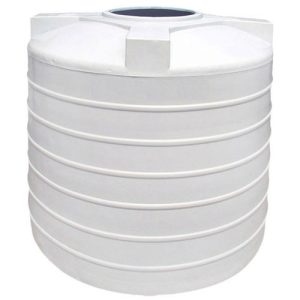
PVC Tanks
A PVC water tank is a storage container made from polyvinyl chloride, a type of plastic. It’s a strong and durable material that is resistant to UV light, making it ideal for storing water. PVC tanks are also very lightweight, making them easy to transport and install. It’s also more inexpensive than others, making PVC water tanks a more affordable option.
However, there are a few disadvantages to PVC water tanks. One of these is that PVC can react with some chemicals. It’s very important to use only food-grade PVC for drinking water storage. Another potential downside of PVC is that it can become brittle over time. This is especially true in colder temperatures. As a result, it is important to inspect PVC tanks regularly for cracks or other damage. Finally, they may contain carcinogenic materials. This means it contains materials that are linked to causing cancer.
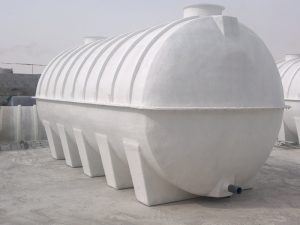
Fibreglass Tanks
Fibreglass is a popular material for water tanks because it is a durable option. They’re lightweight which makes them easy to install. They are also resistant to corrosion. Fibreglass won’t deteriorate over time like some other materials. They are also resistant to rust which can be a problem with other types of tanks. Finally, fibreglass tanks are also easier to clean compared to others.
However, there are some drawbacks to using fibreglass tanks. One issue is that the material is durable but not very strong, so the tanks can be easily damaged. Besides those, it’s not very heat-resistant, so the tank may not be suitable for use in hot climates. Fibreglass can also be more expensive than other types of tanks, and they may not be available in all areas.
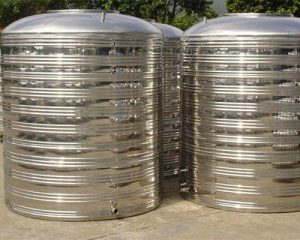
Stainless Steel Tanks
Stainless steel water tanks have several advantages over other types of tanks. They are strong and durable, and they resist corrosion. As a result, they can often last for many years with proper care. Stainless steel tanks are also easy to clean, which helps to keep your water supply safe and healthy. Besides those, they’re often less expensive than other types of tanks.
On the flip side, there are also some disadvantages to using stainless steel water tanks. For example, they can be more difficult to install than other types of tanks. This also means they may need special fittings. They can also be more difficult to repair if they become damaged. On top of that, they can be difficult to clean.

Concrete Tanks
On one hand, concrete is a very strong material, so it can withstand a lot of pressure. This means that your tank will be less likely to leak, even if it’s full. And, if you live in an area with a high water table, a concrete tank will be less likely to float out of the ground. Concrete is also a non-porous material, so it won’t absorb any of the water it holds. This means your water will stay clean and fresh.
On the other hand, they’re quite heavy, so they may be more difficult to install than other types of tanks. Additionally, they can be quite expensive, especially if you need a large tank. Finally, because concrete is non-porous, it doesn’t allow for oxygen exchange. This means that your water may stay fresh but not as aerated as it would be in a different type of tank.
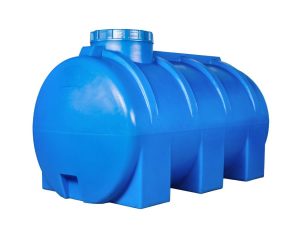
Polyethylene Tanks
Polyethylene is the most common type of plastic used to make water tanks. It’s a popular choice for both domestic and commercial water applications. It’s strong, lightweight, and durable, which makes it an ideal material for storing water. On the plus side, polyethylene tanks are very easy to install. They’re also another inexpensive option, making them a good choice for people on a budget.
However, there are a few things to consider before choosing a polyethylene water tank. Since polyethylene is also a plastic like PVC, it becomes brittle over time and may contain carcinogenic material in them. That means it’s important to check them regularly to avoid leaks. It’s also susceptible to ultraviolet light so storing them in a shady area is best. Exposure to sunlight over time can cause the material to degrade. This can make the tank less effective at storing water. On top of that, polyethylene is also a semi-permeable material. This means that it can allow small amounts of water vapor to escape. As a result, stored water may not be as fresh as it could be.
Why steel tanks are the best storage solution vs other materials
Aside from the points mentioned above, steel tanks look much better than other materials in terms of appearance. Selected tanks are also made with precision and care in specialised facilities.
The best of these are made from a galvanised and colorbond BlueScope Steel Aquaplate. That means no sacrificial anodes that come with a 20-year BHP (Better Home Products) warranty. It protects against rust and has a food-grade liner, the base is a double-sided Aquaplate, while the walls are single-sided Aquaplate.
Though, the best feature is the absence of carcinogenic materials, unlike plastic ones. Many people enjoy these benefits and even get creative by using the same tanks as garden beds. All of which are guaranteed to last.
Why steel tanks are your best investment
Steel tanks combine durability and modern style, making them ideal for homes and businesses. Built to withstand harsh conditions, they provide reliable, long-lasting performance.
High-quality options, such as those made from galvanised and Colourbond BlueScope Steel Aquaplate, deliver exceptional rust and corrosion resistance. With a food-grade liner and a double-sided Aquaplate base, they guarantee safe water storage. Backed by a 20-year BHP warranty, these tanks eliminate the need for sacrificial anodes.
Eco-friendly and free from carcinogenic materials commonly found in plastic alternatives, steel tanks are also highly versatile. Beyond water storage, they can be repurposed as garden beds or decorative features. By investing in a steel tank, you’re choosing a sustainable, reliable, and safe solution that will serve you well for years to come.
What makes Cessnock Tank Works the better option?
At Cessnock Tank Works, we pride ourselves on being “small enough to be personal, but big enough to be professional.” This means you’ll receive expert service while feeling like you’re working with a trusted friend.
With over 20 years of experience, we specialise in customising water tanks to fit your needs—whether it’s size, capacity, or location—without additional charges. Our range includes premium Rainwater, Slimline, Poly, and Pioneer water tanks, ensuring you get only the best.
Our commitment to quality, competitive pricing, and exceptional service has made us the leading water tank provider in Newcastle, Gosford, and the Upper Hunter region. Choose Cessnock Tank Works for reliability, expertise, and peace of mind.
Our Custom Water Tank Construction Process
Every water tank we build is crafted with precision and care, ensuring the highest quality.
- Consultation and Quotation: We assess your requirements and provide a detailed quote.
- Material Procurement: Upon approval, we source premium materials to match your specifications.
- Manufacturing: Our skilled team crafts your tank with precision, typically within 2–4 weeks.
- Delivery and Payment: We arrange delivery and offer cash on delivery (COD) to ensure your satisfaction.
Frequently Asked Questions
How much do water tanks cost?
Prices depend on size and type: Slimline tanks (500–10,000L), round tanks (500–30,000L), and planters come in various sizes.
What size water tank do I need?
The average household tank is around 2,000L, but capacities can range from 500 to 30,000L. We can help you choose the right one.
How many water tanks should I have?
It’s recommended to have at least two tanks—one for clean water, another for reused or non-potable water.
How long do water tanks last?
Steel tanks typically last 20–30 years, depending on maintenance and materials.
How long do hot water tanks last?
Hot water tanks generally last 8–12 years.
Rainwater, Slimline and Poly tanks
We have been manufacturing the Highest Quality BlueScope Steel Aquaplate® Rainwater Tanks for over 20 years and we are now selling PIONEER Water tanks in the Hunter Valley and Central Coast.
We also supply a wide range of accessories while providing a professional, friendly & reliable service.
- 100 to 30,000 Litres ROUND BlueScope Steel Aquaplate® Water Tanks – all standard sizes + custom made to suit your requirements
- 380 to 7,500 Litres SLIMLINE BlueScope Steel Aquaplate® Water Tanks – all standard sizes + custom made to suit your requirements
- 20 Year BlueScope Steel Warranty on all Aquaplate® Water Tanks
- 20 Year Warranty on all Pioneer Water Tanks
- 12,000 to 250,000 in a standard range or custom up to 2.6 million Litres Pioneer built on site Water Tanks – Rural, Mining, Industrial & Agricultural
Aquaplate® Tanks come complete with mosquito proof inlet strainer & overflow, 25mm rigid fitting and ball valve.
Tank accessories available Eg: pumps, fire pumps, Storz fittings, dual water supply, house filters and diverters, stands and installations, water levels.
Why you need a rainwater tank this 2022
As we move into the new financial year, many of us are looking for ways to be more prepared for any eventuality. And one way to do that is to invest in a rainwater tank.
A rainwater tank can be a great addition to any home, especially in areas where water shortages are a possibility. By having a rainwater tank, you can ensure that you have a steady supply of water, no matter what the weather brings.
There are many rainwater tank manufacturers out there, so it’s important to do your research and find the one that best suits your needs. Here are a few things to keep in mind when choosing a rainwater tank manufacturer:
– Capacity: How much water do you need to be able to store? This will depend on the size of your home and the number of people living there.
– Location: Where do you want to install the rainwater tank? Many manufacturers will have different options depending on whether you want an above ground or underground tank.
– Materials: What is the rainwater tank made from? This is important to consider as different materials will have different longevity and maintenance requirements.
– Price: How much are you willing to spend on a rainwater tank? There are many affordable options available, so be sure to shop around before making a decision.
By keeping these things in mind, you can be sure to find the perfect rainwater tank manufacturer for your needs. And with a rainwater tank in your home, you can be prepared for whatever the weather brings.
Steel tanks for bushfires
Research from the Bushfire Cooperative Research Centre and the CSIRO show the importance of good steel tanks when it comes to surviving bushfires. Read more in the following documents.
Ready to Secure Your Water Storage Solution?
Contact Cessnock Tank Works today for a free quote and expert advice. Whether you’re upgrading your current system or installing a new tank, we’ll guide you through the process every step of the way!




